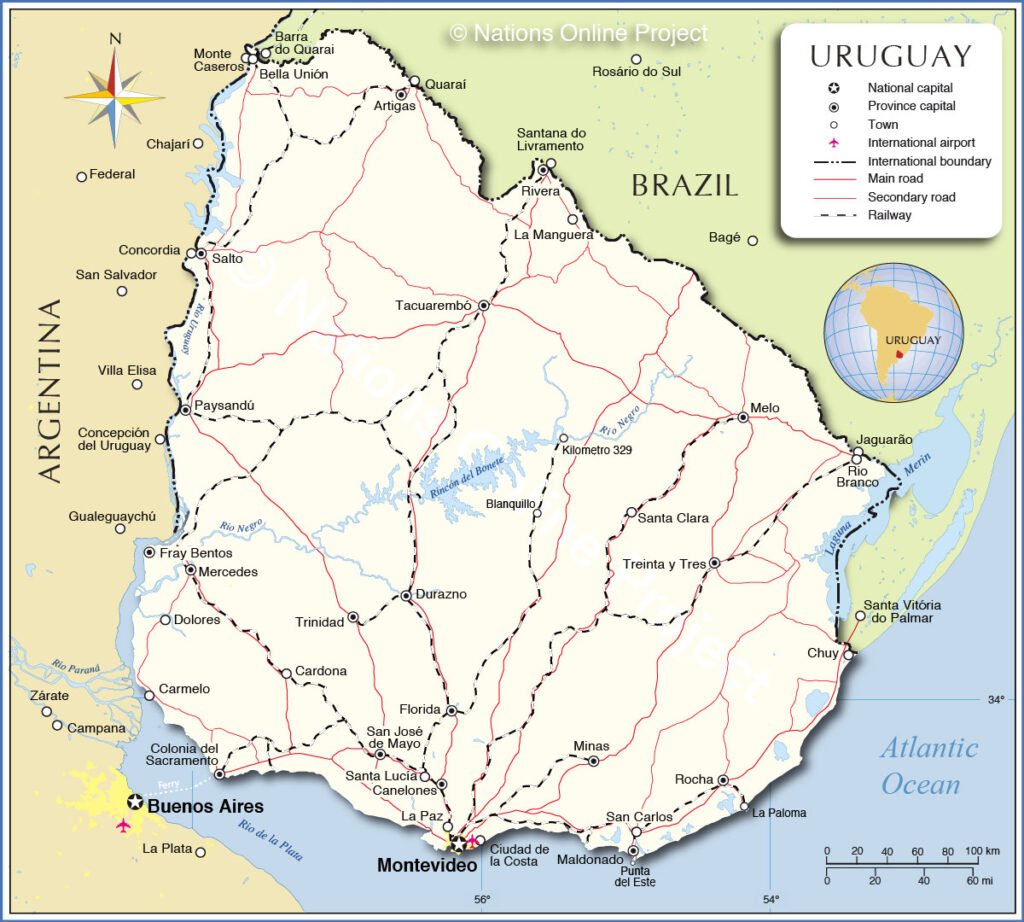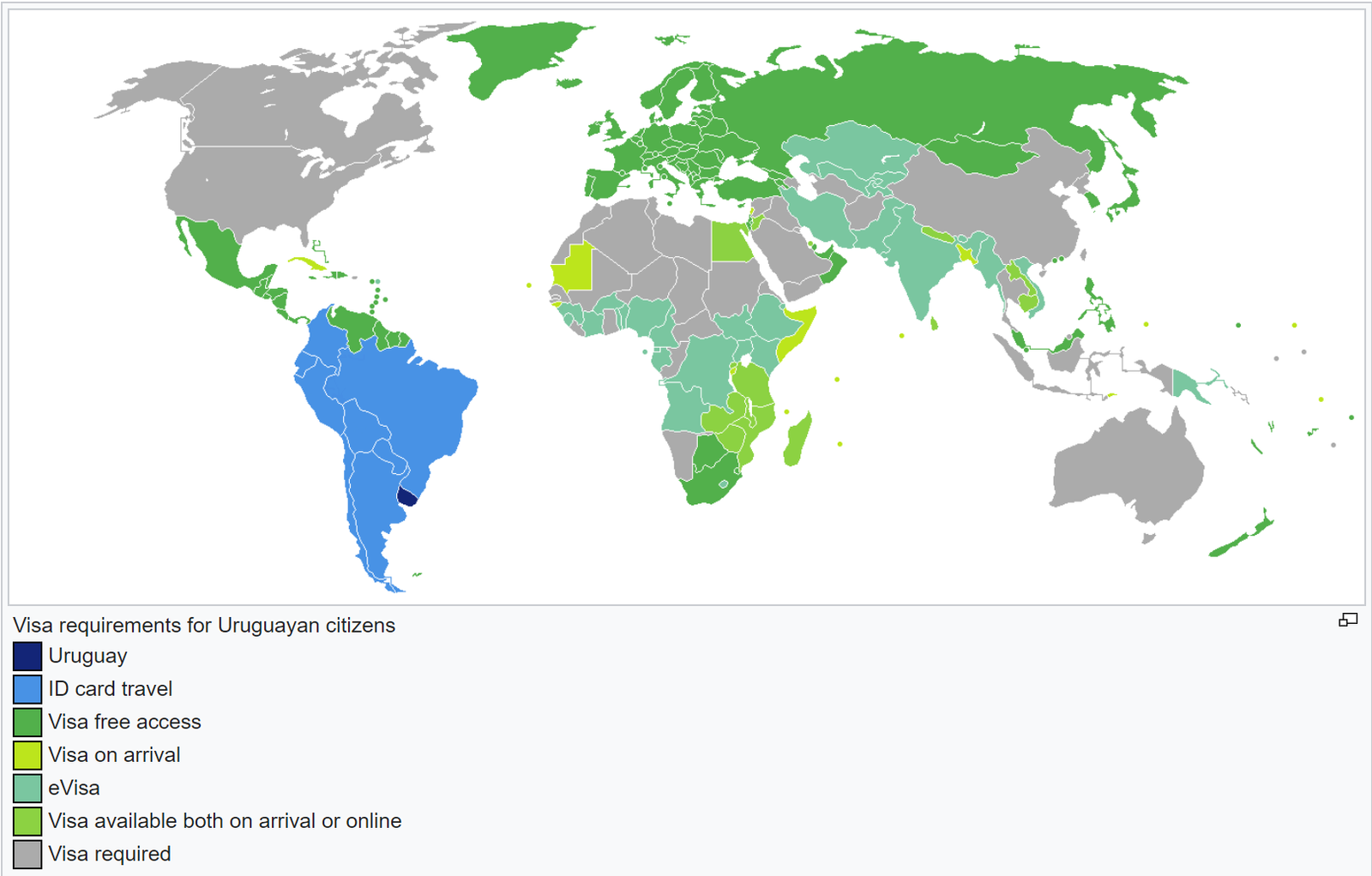Home > South America > Uruguay > How To Get Residency In Uruguay | A Complete Guide
How To Get Residency In Uruguay | A Complete Guide
Capital: Montevideo
Population: 3,499,451 (2023, 132nd)
Ethic Group: 88%white, 4%black, 2.4%Indigenous
Area: 176,215 km2 (89th)
Offical Language: Spanish
Currency: Uruguayan Peso (as of July 2, 2025, 1 Uruguayan Peso = 0.025 USD)
GDP per Captial: $36,014 (2024 estimated, 59th)
Human Development Index: 0.862 (2023, 48th)

Country Profile:
Uruguay, situated in the southeastern corner of South America, is a nation celebrated for its remarkable political stability, high quality of life, and open economic policies. Though it holds the distinction of being the continent’s second-smallest country by landmass, Uruguay has established itself as a pivotal regional center for both tourism and finance. Its economic strength is such that it is recognized by the United Nations as a high-income country, frequently earning it the well-deserved epithet, “The Switzerland of South America.”
Economically, Uruguay’s foundation rests upon a diverse mix of agriculture, a thriving service sector, and burgeoning high-tech industries. The nation is underpinned by a comparatively advanced social welfare system. As an active and influential member of Mercosur, Uruguay is deeply committed to regional economic integration. Furthermore, the country is a global leader in renewable energy, having made significant strides in harnessing both wind and hydroelectric power.
Beyond its economic prowess, Uruguay is distinguished by its progressive social policies and welcoming stance towards immigration. Its lenient immigration regulations and relatively uncomplicated naturalization process draw individuals from across the globe seeking new opportunities. The nation’s commitment to social liberties is particularly noteworthy; Uruguay was among the very first countries in Latin America to legalize cannabis and embrace same-sex marriage, underscoring its forward-thinking and inclusive societal values.
Visa & Immigration System:
Generally, foreign nationals can live in Uruguay for up to six months either visa-free or on a tourist visa.
For those looking to stay longer, Uruguay offers a digital nomad visa. This visa is valid for six months and can be renewed indefinitely under the same conditions.
Foreigners planning to study, work, do business, or engage in scientific research in Uruguay can apply for a Temporary Residence Visa (Temporary Cedula).
This temporary visa is typically valid for two years. Once it expires, holders have the option to renew it or apply for permanent residency.

Permanent Residency & Citizenship:
Uruguay stands out as one of the few countries globally that offers a simple, direct, and low-threshold path to permanent residency, often attainable on your first application.
Eligibility for Uruguayan permanent residency requires fulfilling one of the following three criteria:
1. Possession of Uruguayan lineage or citizenship from a Mercosur member state (Argentina, Brazil, Paraguay, Venezuela, Bolivia).
2. Completion of a minimum of two years of lawful residency within Uruguay as a foreign national.
3. A demonstrated commitment to reside in Uruguay for the majority of the year, establishing it as the primary locus of one’s life, work, and economic activities. This must be substantiated by a stable monthly income of at least $1,500 USD. For joint applications by married couples, a combined monthly income of at least $2,500 USD is required.
Foreign nationals can apply for Uruguayan citizenship after five years of legal residency. If you’re applying as a married couple or a family living together in Uruguay, you can apply for a passport after just three years of residency.
Generally, applying for a passport requires you to have resided in Uruguay for 183 days per year and to pass a simple Spanish language interview.
It’s important to note that Uruguay is one of the few countries in the world that, for naturalized citizens, will only list your original nationality on your passport. This means if you’re an American citizen and obtain a Uruguayan passport, it will still indicate your initial nationality as American.
Passport Power:
Uruguay recognizes dual citizenship. However, if you obtain a Uruguayan passport and then acquire a passport from another country, you will automatically lose your Uruguayan citizenship.
The Uruguayan passport is currently ranked 22nd globally. As of July 2, 2025, Uruguayan citizens can travel freely (visa-free or with a visa-on-arrival) to 156 countries and regions worldwide.

Uruguay is part of the Southern Common Market(MERCOSUR).As shown in the figure below, citizens of the member countries of this agreement can freely work and live in any other member country. After two years, if one can provide proof of financial means to support oneself and family, they can directly obtain a permanent residence visa in the country of residence. Having Uruguayan citizenship is very convenient for living in South America.

Useful Links:
Uruguay Digital Nomad Visa:https://www.gub.uy/tramites/hoja-identidad-provisoria
Uruguay Ministry of Interior:https://mi.iduruguay.gub.uy/login?process_state=0sVSrPoRGHv-AHYsIimcNSqZxD0VCQ-w3MLWwtjpQDA
Home > South America > Uruguay > How To Get Residency In Uruguay | A Complete Guide